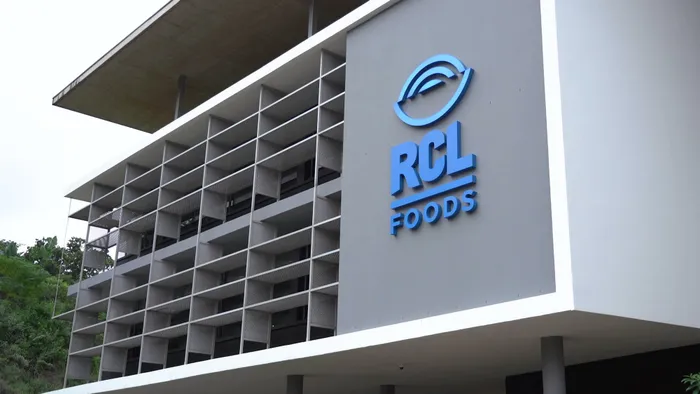RCL FOODS' financial results reveal challenges in South Africa's economic landscape
Manufacturing

RCL FOODS headquarters. CEO Paul Cruickshank said at the release of annual results to June 20, 2025 that sales volume growth of their staple food products remains "worryingly low" and indicate the constrained consumer spending environment.
Image: Supplied
RCL FOODS, the grocery brands, baking and sugar group, managed to lift headline earnings a share by a healthy 14% in the year to June 30, but negative general sales volume growth towards the end of the second half was of concern, CEO Paul Cruickshank said Friday.
In the past year, strong earnings from the group, with brands such as Nola and Ouma came primarily from marginally higher sales and cost savings. Some two months into the new financial year, sales volume growth remained weak and unlikely to change in the next six months, at least, Cruickshank said in an interview on Monday.
The results are in an environment of falling consumer sentiment in South Africa, driven in part by uncertain global trade and political relations, lacklustre gross domestic product growth, and sustained high unemployment rates.
The group tackled the impact of muted sales volumes by a deliberate effort to restore margins that had been compromised over a protracted period by pressures from input costs and load-shedding.
In the past year, revenue from continuing operations increased 1.8% to R26.5bn. Earnings before interest, tax, depreciation, and amortisation (EBITDA) increased by 11.4% to R2.56bn, largely driven by the Baking division (up R285.1 million) and Groceries (up R127.9m).
A final dividend of 40 cents per share brought the total for the financial year to 60 cents per share, up from 35 cents the previous year.
There was a strong turnaround in the Baking division and improvement in Groceries. Sugar performed well operationally, but was subject to unfavourable market dynamics, such as lower global sugar prices and higher imports into South Africa.
Cruickshank said they would likely be exposed to the impact of high sugar imports for at least six months until import tariffs were adjusted higher. The current tariff regime was put in place seven years ago, and annual inflationary price increases meant the local price was sufficiently high for imports from subsidised producers in other, bigger sugar-producing countries to enter South Africa’s market.
Cruickshank said they would continue to focus on their current strategy in the year ahead. “At RCL FOODS, we are committed to our purpose of ‘Growing What Matters’. This means providing affordable food to consumers, maintaining employment for our people, and generating acceptable returns for our shareholders,” he said.
He said they did this in the past year by carefully balancing the relationship between sales volumes and prices, managing their costs, while making responsible trade-offs that align with their purpose.
This was RCL FOODS’ inaugural full-year results following the repositioning of its portfolio through the disposal of Vector Logistics and the unbundling and listing of Rainbow on the JSE on July 1, 2024.
Cruickshank said RCL FOODS was able to maintain strong market shares in key categories. Good progress was also made on saving initiatives to mitigate the dis-synergies arising from the Vector Logistics and Rainbow separations.
Dedicated resourcing and investment into exports in the Southern African Development Community continue to deliver double-digit profit growth, and other category-relevant markets across the continent were being explored.
Cruickshank said although this regional business was unlikely to ever be as big as in South Africa, investments to increase market share in these markets over the few years were starting to pay off.
Underlying EBITDA for the groceries unit increased 19.1% to R592.2m, it increased 55% for the Baking unit to R799.7m, while it fell 24.3% to R963.1m for sugar.
In the Groceries business unit, revenue increased by 1.8% to R5.41bn. Groceries’ improved result was driven by a favourable product mix in pet food, with more focus on premium brands, and savings from revenue management initiatives, production efficiencies, and reduced load shedding.
In the Baking unit (comprising the Bread, Buns & Rolls, Milling, Pies, and Speciality operating units), revenue increased by 1.8% to R9.23bn, with a strong turnaround across all units largely driven by operational efficiencies and volume growth.
In the Sugar business unit, revenue fell by 0.8% to R11.71bn, another strong absolute result, albeit down on the prior year, aided by a pleasing agricultural and manufacturing performance.
Visit:www.businessreport.co.za